Nigeria being Africa’s most populous nation will elect a new president on Saturday in the continent’s largest democratic exercise. Outgoing President Muhammadu Buhari is resigning after nearly eight years in power against a backdrop of instability and massive turmoil as many Nigerians are unable to get the cash they need to purchase food due to a botched rollout of new banknotes.
The country is facing a wide range of economic and security issues, including fuel and cash shortages, an increase in terror attacks, high inflation, unemployment, poverty, and a depreciating local currency, all of which relate to the crucial election.
Elections and voting details
The election is scheduled to be held on Saturday (February 25). To win, a candidate must get the most votes nationwide and more than a quarter of the votes cast in at least two-thirds of Nigeria’s states. If there’s no clear winner, there will be a second round of voting within three weeks’ time.
You Can Also Read: OUR DEMOCRACY, OUR ELECTION
There are total 93.4 million voters and 176,846 polling stations. Citizens have to carry a valid Permanent Voter’s Card (PVC) in order to vote, which essentially verifies voter registration and identifies the voter. Voters need to be at their polling place between 8:00 and 14:00 to cast a ballot. Typically, election results are announced three to five days following the election.
With over 40 percent of registered voters under the age of 34, Elections Commissioner Mahmoud Yakubu has termed the election as “Election of young people.”
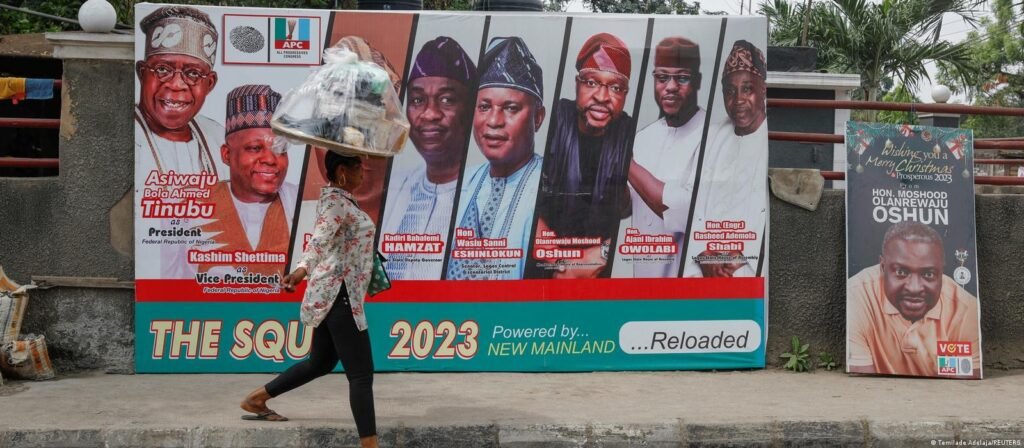
In addition to voting for the president, citizens will also vote for their representatives in the National Assembly. There are 469 lawmakers, including 109 senators and 360 representatives. On Saturday, March 11, the country will also vote for its powerful state governors in 28 of Nigeria’s 36 states.
Candidates In Presidential Run
After the country’s return to democratic governance in 1999, none of the contenders are incumbents or former military leaders for the first time. Eighteen people are vying for Africa’s largest economy’s leadership.
Bola Ahmed Tinubu, a two-term former governor of Lagos and a prominent leader of the ruling All Progressives Congress (APC) party, and Atiku Abubakar, a former vice president eyeing the post for a record sixth time, are among the top contenders. The Labor Party’s (LP) Peter Obi, two-time governor of Anambra, and the New Nigeria People’s Party’s (NNPP) Rabiu Kwankwaso, ex-defense minister and former governor of Kano, are also running for the post.
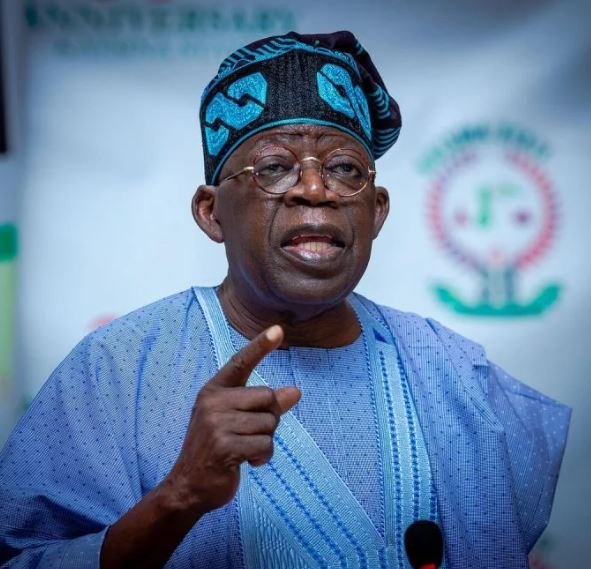
Former Governor of Lagos State
Bola Ahmed Tinubu, 70, is a political godfather in the south-west region; he has enormous influence but has been plagued by claims of corruption and bad health, which he opposes. Some argue that his campaign slogan, “Emi Lokan”, which refers to “it’s my turn [to be president]” in Yoruba, demonstrates a sense of entitlement.
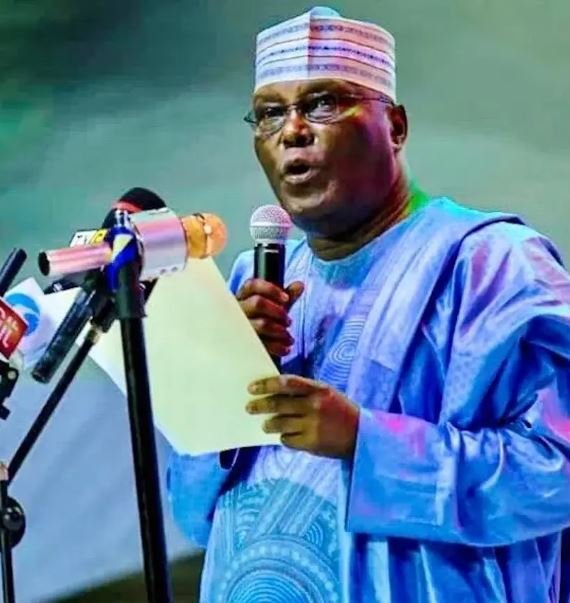
Former Vice President of Nigeria
The 76-year-old Atiku Abubakar has previously made five unsuccessful presidential runs. Most of his career has been spent in positions of power. He was a top civil servant, vice-president under Olusegun Obasanjo, and a well-known businessman. Similar to Mr. Tinubu, he has been accused of corruption and cronyism, both of which he rejects.
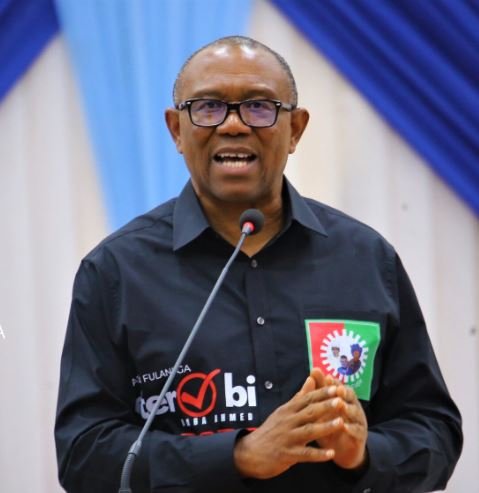
Former Governor of Anambra State
Peter Obi, age 61, aspires to abolish the two-party system that has governed Nigeria since the end of military dictatorship in 1999. Although he was a member of the PDP up until last year, he is viewed as a relatively new face and enjoys encouragement on social media and among Nigeria’s youth. From 2006 to 2014, the rich businessman was the governor of Anambra State’s southeastern region. His supporters while assert that he is the only candidate with integrity, whilst his opponents claim that a vote for Obi would be wasted as he is unlikely to succeed.
Key issues in this election
Buhari became president pledging to repair the economy and combat corruption and insecurity. Yet, his administration has been so poor that even Tinubu, the national leader of the APC, has frequently separated himself from the government’s inadequacies.
In the past five years, the economy has experienced two recessions, and the value of the naira has fallen by one-third. Additionally, there is insecurity, especially in the northeast, northwest, and southeast, where many armed groups have issues with the government and continue to kill and kidnap people. The current presidential election has concentrated on the same concerns.
Uncertainty and security concerns
There is concern that this upcoming election, like the two preceding ones, may be postponed at the eleventh hour. The electoral commission, though, assures that there won’t be disruptions. With 93.4 million Nigerians registered to vote, it’s not clear how many people will show up to vote on Election Day as one of the big concerns is safety.
Abideen Olasupo, a public policy specialist, claimed that the uncertainty surrounding this year’s elections has discouraged many voters. “Nigerian voters are currently the most disturbed and confused voters in the world right now because they are not sure if the election will hold; and if it will hold, they are not sure if the process will not be manipulated,” Olasupo added.
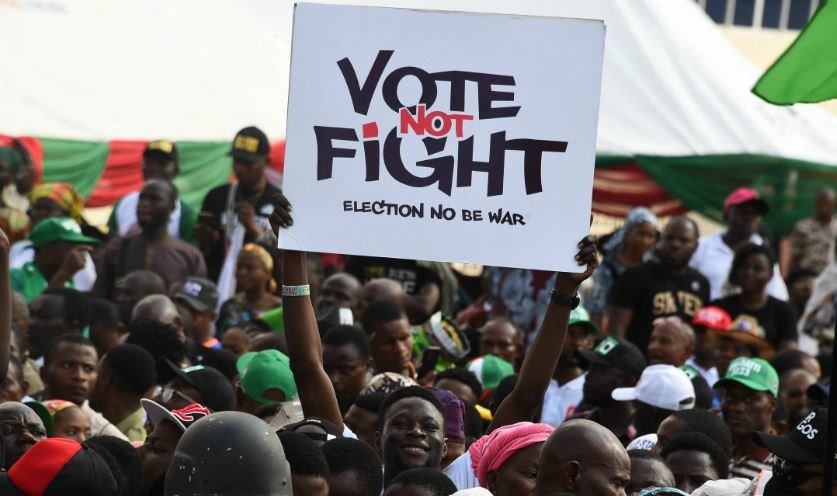
Making old currency notes invalid in an effort to stop corrupt politicians from hoarding cash has also caused problems for the public. Altogether, the fuel shortages and the scarcity of the newly launched local currency have sparked violent protests as millions of people try to obtain the new bank notes.
Additionally, there are fears that a lack of the latest naira notes may disrupt the elections themselves. The electoral body INEC (Independent National Electoral Commission) has warned that if banks don’t give out enough of the new naira, it could be hard to pay the temp employees and security guards who are needed to run thousands of polling stations for the presidential and parliamentary elections. INEC says that voting won’t happen in more than 200 voting stations across Nigeria, such as in Imo and Taraba, two of Nigeria’s conflict-prone states, because of concerns about security.
Whoever wins the presidential election, the next Nigerian president will have to immediately begin working to address the country’s mounting debt, oil theft, reverse economic downturn and the contentious gasoline subsidy that causes the country to lose significant amount of money from oil export.


